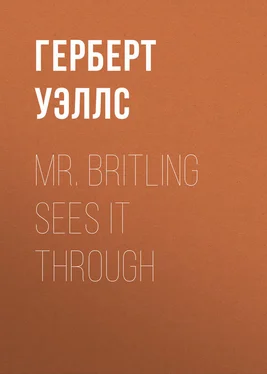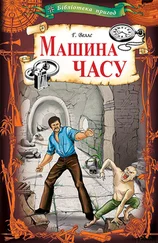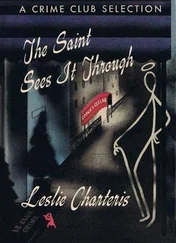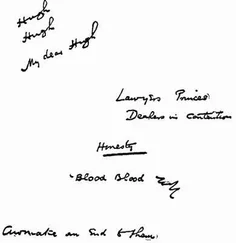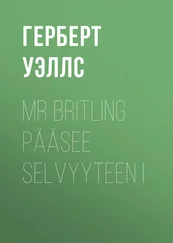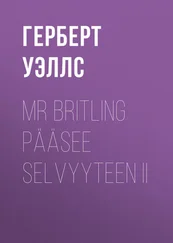Герберт Уэллс - Mr. Britling Sees It Through
Здесь есть возможность читать онлайн «Герберт Уэллс - Mr. Britling Sees It Through» — ознакомительный отрывок электронной книги совершенно бесплатно, а после прочтения отрывка купить полную версию. В некоторых случаях можно слушать аудио, скачать через торрент в формате fb2 и присутствует краткое содержание. Жанр: История, foreign_prose, на английском языке. Описание произведения, (предисловие) а так же отзывы посетителей доступны на портале библиотеки ЛибКат.
- Название:Mr. Britling Sees It Through
- Автор:
- Жанр:
- Год:неизвестен
- ISBN:нет данных
- Рейтинг книги:3 / 5. Голосов: 1
-
Избранное:Добавить в избранное
- Отзывы:
-
Ваша оценка:
- 60
- 1
- 2
- 3
- 4
- 5
Mr. Britling Sees It Through: краткое содержание, описание и аннотация
Предлагаем к чтению аннотацию, описание, краткое содержание или предисловие (зависит от того, что написал сам автор книги «Mr. Britling Sees It Through»). Если вы не нашли необходимую информацию о книге — напишите в комментариях, мы постараемся отыскать её.
Mr. Britling Sees It Through — читать онлайн ознакомительный отрывок
Ниже представлен текст книги, разбитый по страницам. Система сохранения места последней прочитанной страницы, позволяет с удобством читать онлайн бесплатно книгу «Mr. Britling Sees It Through», без необходимости каждый раз заново искать на чём Вы остановились. Поставьте закладку, и сможете в любой момент перейти на страницу, на которой закончили чтение.
Интервал:
Закладка:
"This contrast between Heinrich's carefulness and Teddy's easy-goingness, come to look at it, is I suppose one of the most fundamental in the world. It reaches to everything. It mixes up with education, statecraft, morals. Will you make or will you take? Those are the two extreme courses in all such things. I suppose the answer of wisdom to that is, like all wise answers, a compromise. I suppose one must accept and then make all one can of it… Have you talked at all to my eldest son?"
"He's a very interesting young man indeed," said Mr. Direck. "I should venture to say there's a very great deal in him. I was most impressed by the few words I had with him."
"There, for example, is one of my perplexities," said Mr. Britling.
Mr. Direck waited for some further light on this sudden transition.
"Ah! your troubles in life haven't begun yet. Wait till you're a father. That cuts to the bone. You have the most delicate thing in the world in hand, a young kindred mind. You feel responsible for it, you know you are responsible for it; and you lose touch with it. You can't get at it. Nowadays we've lost the old tradition of fatherhood by divine right – and we haven't got a new one. I've tried not to be a cramping ruler, a director, a domestic tyrant to that lad – and in effect it's meant his going his own way… I don't dominate. I hoped to advise. But you see he loves my respect and good opinion. Too much. When things go well I know of them. When the world goes dark for him, then he keeps his trouble from me. Just when I would so eagerly go into it with him… There's something the matter now, something – it may be grave. I feel he wants to tell me. And there it is! – it seems I am the last person to whom he can humiliate himself by a confession of blundering, or weakness… Something I should just laugh at and say, 'That's in the blood of all of us, dear Spit of myself. Let's see what's to be done.'…"
He paused and then went on, finding in the unfamiliarity and transitoriness of his visitor a freedom he might have failed to find in a close friend.
"I am frightened at times at all I don't know about in that boy's mind. I know nothing of his religiosities. He's my son and he must have religiosities. I know nothing of his ideas or of his knowledge about sex and all that side of life. I do not know of the things he finds beautiful. I can guess at times; that's all; when he betrays himself… You see, you don't know really what love is until you have children. One doesn't love women. Indeed you don't! One gives and gets; it's a trade. One may have tremendous excitements and expectations and overwhelming desires. That's all very well in its way. But the love of children is an exquisite tenderness: it rends the heart. It's a thing of God. And I lie awake at nights and stretch out my hands in the darkness to this lad – who will never know – until his sons come in their time…"
He made one of his quick turns again.
"And that's where our English way makes for distresses. Mr. Prussian respects and fears his father; respects authorities, attends, obeys and — his father has a hold upon him . But I said to myself at the outset, 'No, whatever happens, I will not usurp the place of God. I will not be the Priest-Patriarch of my children. They shall grow and I will grow beside them, helping but not cramping or overshadowing.' They grow more. But they blunder more. Life ceases to be a discipline and becomes an experiment…"
"That's very true," said Mr. Direck, to whom it seemed the time was ripe to say something. "This is the problem of America perhaps even more than of England. Though I have not had the parental experience you have undergone… I can see very clearly that a son is a very serious proposition."
"The old system of life was organisation. That is where Germany is still the most ancient of European states. It's a reversion to a tribal cult. It's atavistic… To organise or discipline, or mould characters or press authority, is to assume that you have reached finality in your general philosophy. It implies an assured end. Heinrich has his assured end, his philological professorship or thereabouts as a part of the Germanic machine. And that too has its assured end in German national assertion. Here, we have none of those convictions. We know we haven't finality, and so we are open and apologetic and receptive, rather than wilful… You see all organisation, with its implication of finality, is death. We feel that. The Germans don't. What you organise you kill. Organised morals or organised religion or organised thought are dead morals and dead religion and dead thought. Yet some organisation you must have. Organisation is like killing cattle. If you do not kill some the herd is just waste. But you musn't kill all or you kill the herd. The unkilled cattle are the herd, the continuation; the unorganised side of life is the real life. The reality of life is adventure, not performance. What isn't adventure isn't life. What can be ruled about can be machined. But priests and schoolmasters and bureaucrats get hold of life and try to make it all rules, all etiquette and regulation and correctitude… And parents and the love of parents make for the same thing. It is all very well to experiment for oneself, but when one sees these dear things of one's own, so young and inexperienced and so capable of every sort of gallant foolishness, walking along the narrow plank, going down into dark jungles, ah! then it makes one want to wrap them in laws and foresight and fence them about with 'Verboten' boards in all the conceivable aspects…"
"In America of course we do set a certain store upon youthful self-reliance," said Mr. Direck.
"As we do here. It's in your blood and our blood. It's the instinct of the English and the Irish anyhow to suspect government and take the risks of the chancy way… And manifestly the Russians, if you read their novelists, have the same twist in them… When we get this young Prussian here, he's a marvel to us. He really believes in Law. He likes to obey. That seems a sort of joke to us. It's curious how foreign these Germans are – to all the rest of the world. Because of their docility. Scratch the Russian and you get the Tartar. Educate the Russian or the American or the Englishman or the Irishman or Frenchman or any real northern European except the German, and you get the Anarchist, that is to say the man who dreams of order without organisation – of something beyond organisation…
"It's one o'clock," said Mr. Britling abruptly, perceiving a shade of fatigue upon the face of his hearer and realising that his thoughts had taken him too far, "and Sunday. Let's go to bed."
§ 11
For a time Mr. Direck could not sleep. His mind had been too excited by this incessant day with all its novelties and all its provocations to comparison. The whole complicated spectacle grouped itself, with a naturalness and a complete want of logic that all who have been young will understand, about Cecily Corner.
She had to be in the picture, and so she came in as though she were the central figure, as though she were the quintessential England. There she was, the type, the blood, the likeness, of no end of Massachusetts families, the very same stuff indeed, and yet she was different…
For a time his thoughts hovered ineffectively about certain details of her ear and cheek, and one may doubt if his interest in these things was entirely international…
Then he found himself under way with an exposition of certain points to Mr. Britling. In the security of his bed he could imagine that he was talking very slowly and carefully while Mr. Britling listened; already he was more than half way to dreamland or he could not have supposed anything so incredible.
"There's a curious sort of difference," he was saying. "It is difficult to define, but on the whole I might express it by saying that such a gathering as this if it was in America would be drawn with harder lines, would show its bones more and have everything more emphatic. And just to take one illustrative point: in America in such a gathering as this there would be bound to be several jokes going on as it were, running jokes and running criticisms, from day to day and from week to week… There would be jokes about your writing and your influence and jokes about Miss Corner's advanced reading… You see, in America we pay much more attention to personal character. Here people, I notice, are not talked to about their personal characters at all, and many of them do not seem to be aware and do not seem to mind what personal characters they have…
Читать дальшеИнтервал:
Закладка:
Похожие книги на «Mr. Britling Sees It Through»
Представляем Вашему вниманию похожие книги на «Mr. Britling Sees It Through» списком для выбора. Мы отобрали схожую по названию и смыслу литературу в надежде предоставить читателям больше вариантов отыскать новые, интересные, ещё непрочитанные произведения.
Обсуждение, отзывы о книге «Mr. Britling Sees It Through» и просто собственные мнения читателей. Оставьте ваши комментарии, напишите, что Вы думаете о произведении, его смысле или главных героях. Укажите что конкретно понравилось, а что нет, и почему Вы так считаете.
